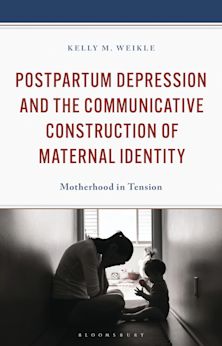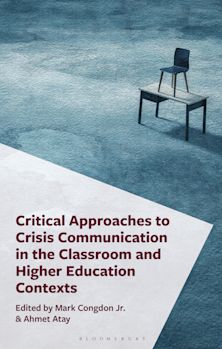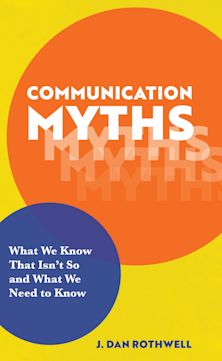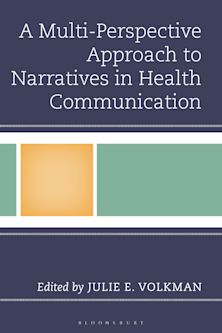Communicating with Our Families
Technology as Continuity, Interruption, and Transformation
Communicating with Our Families
Technology as Continuity, Interruption, and Transformation
This product is usually dispatched within 1 week
- Delivery and returns info
-
Free CA delivery on orders $40 or over
Description
Communicating with Our Families: Continuity, Interruption, and Transformation examines how communication technologies are shaping childhood, parenthood, and families by exploring topics such as parental loneliness, family storytelling, family technology rules, mindful technology usage, multigenerational communication, and community. The scholars in this volume work from a human communication perspective and use various research modes of inquiry including quantitative, qualitative, and interpretive methods. Perhaps the most significant question implied by our contributors in this volume is whether the introduction of new communication technologies will fundamentally alter familial forms and if those new groupings that emerge will resemble what has been generally assumed for several millennia.
Table of Contents
Chapter 1: Zooming through Change: The Role of Communication Technologies in Intergenerational Family Transitions during the COVID-19 Pandemic – Elizabeth B. Jones
Chapter 2: Narrative Wisdom: Implications from Literature for Family Communication Technology – Janie Harden Fritz
Chapter 3: Rhetorical Constructions of the Reset: Video Games and Family Connections – Paul Lucas
Chapter 4: The Role of Communication and Information Technology in Health Information Seeking – Patty Wharton-Michael
Chapter 5: With Great Power Comes Ethical Communication: Technology, Superheroes, and Family Conversations in Communication Ethics – Christina L. McDowell Marinchak and Tyrell J. Stewart-Harris
Section II: Interruption
Chapter 6: Cellular Television and the Reallocation of Familiar Attention – Joel S. Ward
Chapter 7: Formative Media Consumption: Utilizing Media as Grammatical Foundations of Families – Anthony M. Wachs
Chapter 8: Motherhood and Loneliness: The Social Media D
Product details
| Published | Jul 12 2022 |
|---|---|
| Format | Hardback |
| Edition | 1st |
| Extent | 276 |
| ISBN | 9781666900613 |
| Imprint | Lexington Books |
| Illustrations | 1 b/w illustrations; 1 tables; |
| Dimensions | 228 x 159 mm |
| Publisher | Bloomsbury Publishing |
Reviews

ONLINE RESOURCES
Bloomsbury Collections
This book is available on Bloomsbury Collections where your library has access.


































